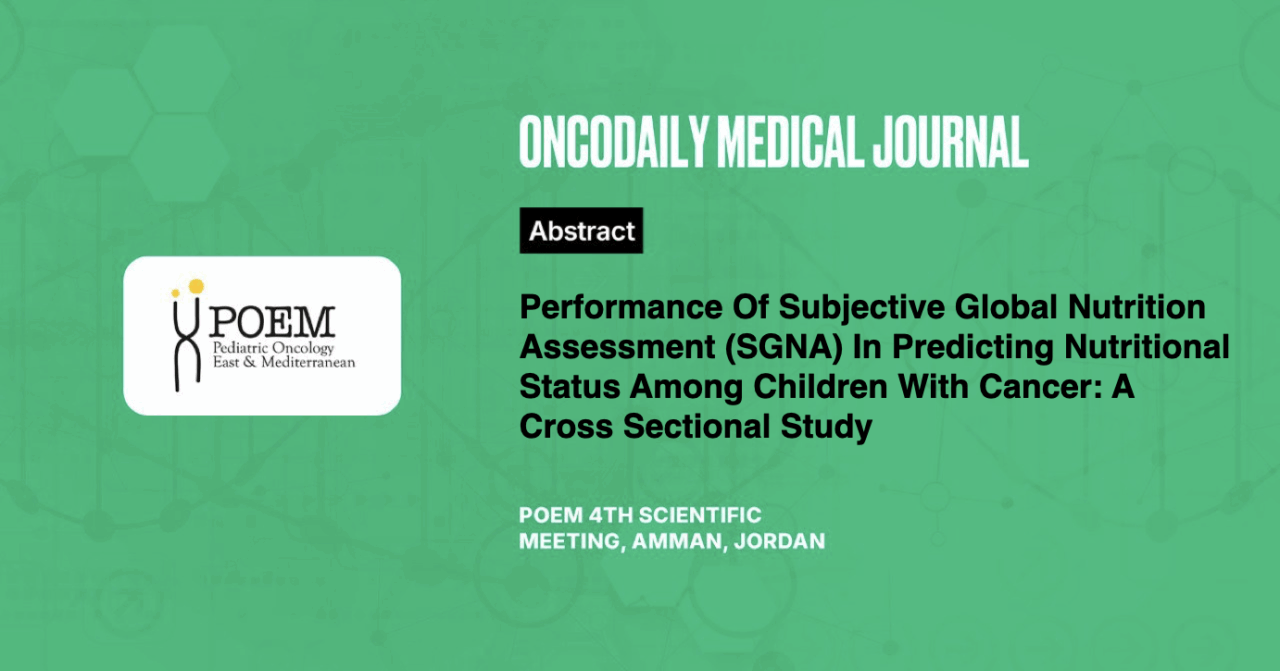Performance Of Subjective Global Nutrition Assessment (SGNA) In Predicting Nutritional Status Among Children With Cancer: A Cross Sectional Study
Abstract
Introduction: Children diagnosed with cancer are more susceptible to malnutrition and should receive extra consideration when it comes to nutritional evaluation. It is difficult to analyze nutritional status in children undergoing cancer therapy because there isn’t a single, reliable tool.
Anthropometric measurements are the most widely used objective tool for evaluating malnutrition in children; but it can be easily affected by disease and treatment, reducing its accuracy for evaluating body composition. The aim of this study was to evaluate the effectiveness of Subjective Global Nutrition Assessment (SGNA) in predicting nutritional status as compared to anthropometric measurements among children with cancer in Pakistan.
Methodology: This cross-sectional study was conducted in the oncology department of hospitals in Lahore, Pakistan. SGNA along with anthropometric studies were conducted on children aged 2–18 years receiving oncological treatment. To evaluate agreement between SGNA and anthropometric indicators in identifying malnutrition status, sensitivity, specificity, positive predictive value (PPV) and negative predictive value (NPV) was performed.
Results: In 135 children 68.1 % were identified as having moderate or severe malnutrition according to SGNA. SGNA demonstrated the best performance with MUAC/A, showing a sensitivity of 85.7 %, specificity of 47.2 %, PPV of 58.7 %, and NPV of 88.1 %. But the agreement between SGNA and objective measures was only fair.
Conclusion: The SGNA proved useful for assessing the nutritional status of children with cancer and was effective in monitoring the prevalence of malnutrition when compared to objective nutritional evaluation methods.





